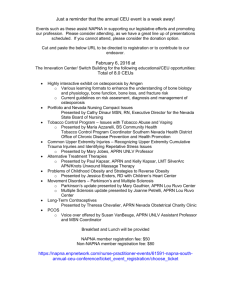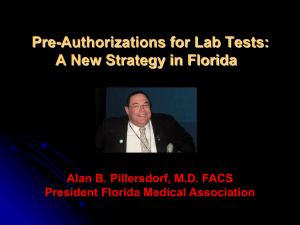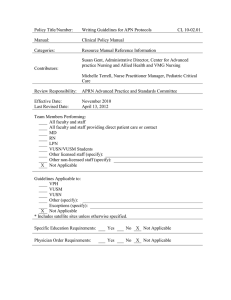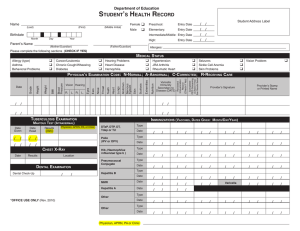five years and beyond – the school age period
advertisement
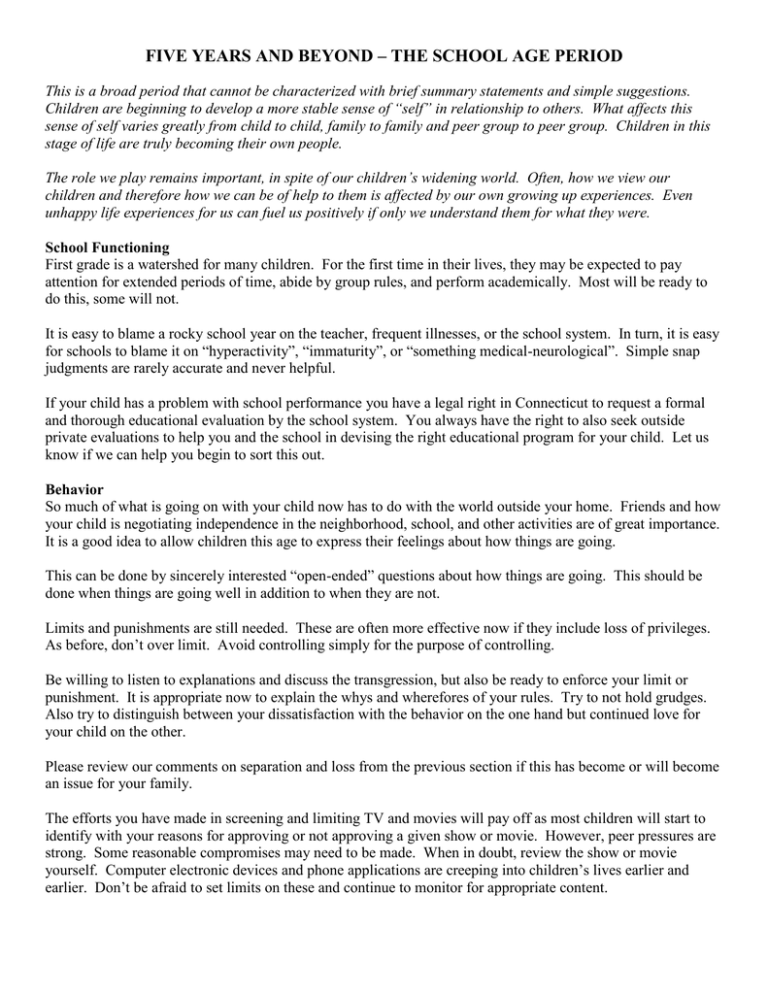
FIVE YEARS AND BEYOND – THE SCHOOL AGE PERIOD This is a broad period that cannot be characterized with brief summary statements and simple suggestions. Children are beginning to develop a more stable sense of “self” in relationship to others. What affects this sense of self varies greatly from child to child, family to family and peer group to peer group. Children in this stage of life are truly becoming their own people. The role we play remains important, in spite of our children’s widening world. Often, how we view our children and therefore how we can be of help to them is affected by our own growing up experiences. Even unhappy life experiences for us can fuel us positively if only we understand them for what they were. School Functioning First grade is a watershed for many children. For the first time in their lives, they may be expected to pay attention for extended periods of time, abide by group rules, and perform academically. Most will be ready to do this, some will not. It is easy to blame a rocky school year on the teacher, frequent illnesses, or the school system. In turn, it is easy for schools to blame it on “hyperactivity”, “immaturity”, or “something medical-neurological”. Simple snap judgments are rarely accurate and never helpful. If your child has a problem with school performance you have a legal right in Connecticut to request a formal and thorough educational evaluation by the school system. You always have the right to also seek outside private evaluations to help you and the school in devising the right educational program for your child. Let us know if we can help you begin to sort this out. Behavior So much of what is going on with your child now has to do with the world outside your home. Friends and how your child is negotiating independence in the neighborhood, school, and other activities are of great importance. It is a good idea to allow children this age to express their feelings about how things are going. This can be done by sincerely interested “open-ended” questions about how things are going. This should be done when things are going well in addition to when they are not. Limits and punishments are still needed. These are often more effective now if they include loss of privileges. As before, don’t over limit. Avoid controlling simply for the purpose of controlling. Be willing to listen to explanations and discuss the transgression, but also be ready to enforce your limit or punishment. It is appropriate now to explain the whys and wherefores of your rules. Try to not hold grudges. Also try to distinguish between your dissatisfaction with the behavior on the one hand but continued love for your child on the other. Please review our comments on separation and loss from the previous section if this has become or will become an issue for your family. The efforts you have made in screening and limiting TV and movies will pay off as most children will start to identify with your reasons for approving or not approving a given show or movie. However, peer pressures are strong. Some reasonable compromises may need to be made. When in doubt, review the show or movie yourself. Computer electronic devices and phone applications are creeping into children’s lives earlier and earlier. Don’t be afraid to set limits on these and continue to monitor for appropriate content. Safety Please make safety belt wearing a non-negotiable limit in the car. Most children will still need booster seats to have the seatbelt fit properly. Booster seats are needed until 60-80 pounds and 57 inches. Also, make sure children abide by water safety rules. They should always swim with adult supervision and never venture out on boats without life jackets. Nutrition Again, the fruits of your labor earlier are apparent. Children face pressure to indulge in large amounts of “junk food” eating – TV and peers are hard to resist. By establishing patterns early, children this age are better able to resist temptations. We are discovering more links between television and obesity. Did you know that studies have shown a TV in your child’s bedroom is associated with obesity? Turn off the TV and video games and get your kids moving! Camp and School Physical Exams Once a child has completed first grade (six or seven years old), we continue to recommend exams every year. Suggested Readings Bettelheim, A Good Enough Parent Brazelton, Doctor and Child Jewett, Helping Children Cope with Separation and Loss Children’s Medical Group Dear Parent: Each year more than 200,000 children are born with or develop vision problems. Many of these problems go undetected until it is too late to easily correct the problem. One of the most common problems associated with children’s eye sight is Amblyopia. Amblyopia or lazy eye is reduced vision in an eye that has not received adequate use during early childhood and is often not correctable with eyeglasses. For these reasons, Children’s Medical Group will be performing an enhanced vision screening test on all children between the ages of 6 months-8 years. This test will allow us to detect any abnormalities in your child’s vision. If an abnormality is detected, your physician/nurse practitioner will take appropriate steps to have your child treated. As with any new procedure, questions regarding insurance coverage are always asked. We have surveyed some of the larger insurance HMO’s who have indicated that this type of test is covered. However, we cannot guarantee that all insurance plans will reimburse for this procedure. We will promise to work with you, should this become the case. Attached to this letter are several helpful fact sheets pertaining to this new procedure. We’d like you to know that if you do have additional questions/concerns or choose not to have this procedure done, please do not hesitate to bring them to the attention of your physician/nurse practitioner. Thank you. Sincerely, Children’s Medical Group David Brown, MD Viviann Rubin, MD Catherine Worthley, APRN Nirupa Sekaran, APRN Harry Weinerman, MD Maury Luxemburg, MD Lois Heinemann, APRN Felicia Wilion, MD Margot H. Dayton, MD Lisa Gagnon, APRN CHILDREN’S MEDICAL GROUP BLOOMFIELD * ROCKY HILL LEAD RISK ASSESSMENT PLEASE ANSWER THE FOLLOWING QUESTIONS TO HELP US DETERMINE IF YOUR CHILD IS AT RISK FOR HIGH DOSE LEAD EXPOSURE 1. Does your child live in or regularly visit a house that was built before 1960? (This could be a day care center, preschool, the home of a baby sitter or a relative, recent move, etc.) YES NO 2. Does your child live in or regularly visit a house built before 1978 with recent, ongoing, or planned renovation or remodeling? YES NO 3. Does your child have a history of an elevated blood lead level? YES NO 4. Does your child have a brother or sister, housemate, or playmate being followed or treated for lead poisoning? YES NO 5. Does your child frequently come in contact with an adult whose job or hobby involves exposure to lead (e.g. construction, welding, automotive repair shop, other trades practiced in your community, stained glass making; using lead solder, artist paints or ceramic glazes; etc.)? YES NO 6. Does your child live near an active lead smelter, battery recycling plant, or other industry likely to release lead? YES NO 7. Does your child live near a heavily traveled major highway where soil and dust may be contaminated with lead? YES NO 8. Has your child been given any home remedies? Home remedies containing lead include: azacon (also know as rueda, coral, Maria Luisa, alarcon, liga); albayade; greta; pay-loo-ah; ghasard;bala goli; kandu; kohl. YES NO Name: _____________________________________D.O.B.__________________ Date: ______________ Tuberculosis Screening Test Please answer the following questions and let us know if any of these risk factors change in the future. Has your child been in contact with anyone with active Tuberculosis (TB)? Has your child been in regular contact with anyone who might have the following? HIV, been in prison, was in a shelter, was a migrant worker, injects illegal drugs or someone who recently came/went to the U.S. (within 5 years)? YES Was your child born in or has your child traveled to any of these areas: Latin America, Central or South America, Africa, Asia, Eastern Europe? YES NO YES NO NO If your child traveled to a country above please indicate time frame: ________________________ With whom did they stay? Family Friend In hotel Children’s Medical Group To the Parents of our Almost Teenagers: It is hard to believe that so many years have passed. What growth and change you have all been through! We want to take a moment to share with you some changes that you and your child will notice related to office visits. Your child is on the threshold of enormous growth and development as the teenage/adolescent years approach. Many of you have probably heard the saying “if you think the terrible two’s are bad, wait until he/she is a teenager”, or “little kids, little problems - big kids, big problems”. We hope that as health professionals, we can help you and your child navigate through these challenging times, as your child continues to evolve from a dependent child to a more independent adult. We will try to encourage your children to become more responsible and aware of their own health issues and concerns. You may notice during visits that we have already begun to direct more questions and instructions to your child. We need to begin to let your children know that we are their doctor and nurse practitioner. Starting at the 10 year visit, we will ask your children if they would like some privacy during their check-up. Some of our patients have already started to go through puberty and have more modest feelings that we try to respect. At your request, we can offer a nurse chaperone during your child’s exam. In addition, as your children reach their teenage years we ask that they fill out a confidential questionnaire before the exam. The survey of questions is a way for us to direct our education and exam to meet the needs of your child. We would be happy to provide you with a copy of the questionnaire. If you are uncomfortable with it or any part of it, you may opt not to have your child participate. We ask that the survey be confidential to encourage your child to feel safe in revealing any concerns that he/she may have. We believe there needs to be an agreement among parents, teens and health professionals that confidential discussions and care are available to our teens who are mature enough to make their own medical decisions. However, we are compelled to share this confidential information in rare situations when a teenager might harm himself or herself or others. We will always encourage your teen to share with you all aspects of their health care and social concerns. We hope, as in the past, that we can continue to be a resource for both you and your child through this exciting, and challenging, stage of development. Our goal is to keep the dialogue going between you and your emerging adolescent. Feel free to contact us with any concerns. We hope that as your child grows; he/she will feel equally comfortable speaking with us about any health concerns. Sincerely, David Brown, MD Viviann Rubin, MD Catherine Worthley, APRN Nirupa Sekaran, APRN Harry Weinerman, MD Maury Luxemburg, MD Lois Heinemann, APRN Felicia Wilion, MD Margot H. Dayton, MD Lisa Gagnon, APRN
